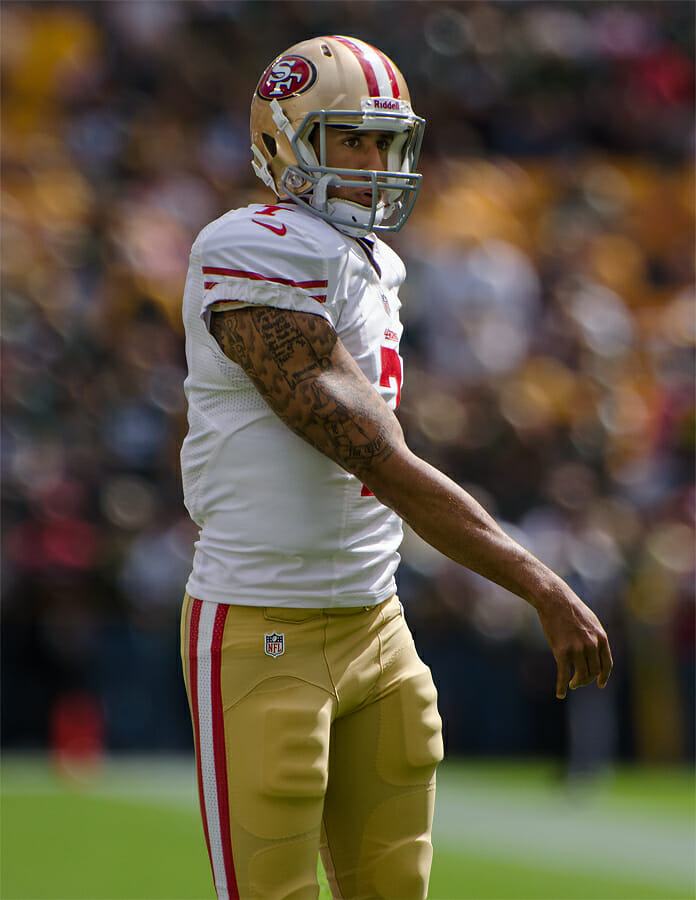Colin Kaepernick ignited a media firestorm several weeks ago when he sat down before a preseason game against the Green Bay Packers. The action itself wasn’t considered egregious. Rather-it was the timing of his sitting. The San Francisco 49ers quarterback decided to not stand during the national anthem. After the game, Kaepernick explained his reasoning: “I am not going to stand up to show pride in a flag for a country that oppresses black people and people of color.”
Kaepernick was eviscerated by many for his silent protest, with everyone from fellow NFL players to Donald Trump chiming in on the incident. Most of Kaepernick’s critics labeled him as a spoiled brat who has no respect for the military. Trump himself said that if he doesn’t respect the freedoms that America provides, he should leave the country. All of these people miss the point of Kaepernick’s protest. His intent was not to disrespect the military or the country that he lives in. Instead, Kaepernick was protesting the treatment of minorities, particularly African-Americans, in America.
It’s particularly concerning that NFL players like New York Giants wide receiver Victor Cruz and Minnesota Vikings guard Alex Boone so quickly decry Kaepernick’s silent protest, yet don’t even acknowledge the deaths of Eric Garner and Philando Castile in their own home markets.
I thought the most powerful rhetoric on this issue came from Army Ranger Brent Boyer. Instead of piling on to the sentiment that Kaepernick intentionally disrespected the military, Boyer took the opposite stance. He argued that the military is ensuring the very freedom of expression that Kaepernick used.
This Kaepernick situation reminded me of another protest that occurred 48 years ago. At the 1968 Summer Olympics in Mexico City, American track medalists John Carlos and Tommie Smith raised their black-gloved fists at the 200 meter dash medal ceremony. Their black power salute protested the condition of African-Americans, similar to the reasoning behind Kaepernick’s protest.
And also like Kaepernick, both Olympians were heavily criticized for their gesture of defiance. It took several years for their actions to be seen as a positive spark for change. Now, both men have statues at San Jose State University, not far from Levi’s stadium, the 49er’s home field.
Like Carlos and Smith, I think Kaepernick will eventually become a hero for his actions. Even if you don’t agree with how he protested. He’s started another conversation and made people think.
In an election year where racism and bigotry dominates the headlines, Kaepernick’s protest wasn’t only good-it was necessary.








